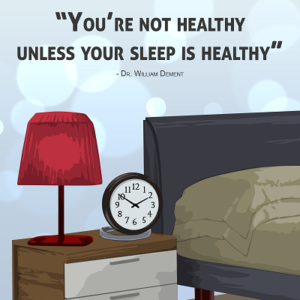 Insomnia can be broken down into two categories: acute and chronic. Acute insomnia includes mild and moderate cases. Chronic insomnia is defined as any case that lasts longer than a month and is more frequent than a day or two a week. There are a number of causes for each type.
Insomnia can be broken down into two categories: acute and chronic. Acute insomnia includes mild and moderate cases. Chronic insomnia is defined as any case that lasts longer than a month and is more frequent than a day or two a week. There are a number of causes for each type.
Causes of Acute Insomnia
Acute insomnia can be primary or secondary; that is, having a specific underlying health cause.
Stress
The main cause of primary insomnia is stress. Stress can come from family, work or a combination of the two. We are all capable of dealing with small doses of stress, but big life events such as a new job, home, or baby will be happy experiences on the one hand, and stressful on the other.
Major changes in our lives can also cause insomnia or a break in our lifestyle and personal habits. Dealing with emotional issues such as the death of a loved one, a loss of job or a divorce can bring on a great deal of stress and result in insomnia.
Depression
Insomnia can also be a sign of depression, triggered by major life events which trigger a chemical change in the brain.
Environment
Another cause of acute insomnia is related to environmental factors. People who live near elevated trains and busy highways or in noisy cities know what it is like to have their sleep interrupted. Noise and other distractions can lead to bouts of insomnia.
Medications
In reference to secondary insomnia, taking medications can lead to an acute form of insomnia. Almost all prescription medications have some sort of side effect. Medications for high blood pressure, depression, cold symptoms, flu and asthma can have insomnia as a side effect for as long as you are taking them.
In particular, many cold medicines contain caffeine in order to help you try to keep on working and functioning through your illness. Look for medicines suited to people with high blood pressure, which will be formulated differently.
Also avoid the kind of cold remedies designed to give you a good night’s sleep. Many of them contain high amounts of alcohol, which can interrupt your natural sleep cycle so you will have trouble falling asleep naturally once you stop taking the medicine.
Chemical Imbalances
Deficiencies of certain hormones, neurotransmitters and vitamins and minerals in the body can also lead to insomnia. Imbalances in hormones due to pregnancy or menopause can lead to sleeplessness. The cumbersomeness of your body as your pregnancy advances will also cause sleep-related issues as you try to get comfortable in bed.
Treatments for diseases such as acid reflux and cancer can deplete the body of precious minerals and lead to insomnia. Back pain and certain other diseases such as arthritis can cause sleeplessness due to lack of comfort in bed.
Heart patients and those with chronic pulmonary obstructive disorder (COPD) may have issues with being able to lay flat in bed and might have to sleep with their head, shoulders and chest propped up by pillows. Those with sleep apnea may also experience breathing difficulties and find themselves gasping for air, which in turn causes sleep disturbances.
Chronic Insomnia
The causes of chronic insomnia are similar to those of acute insomnia, except that these conditions have been going on for a longer period of time.
Stress, depression, and sleep apnea are all main causes of chronic insomnia. Sleep apnea is not just snoring; it is an obstruction of the airways that causes you to wake many times in the night gasping for air.
If you have been struggling to get a decent night’s sleep, it’s time to get to the bottom of the causes of your insomnia.






